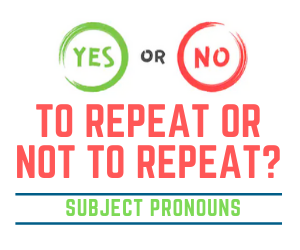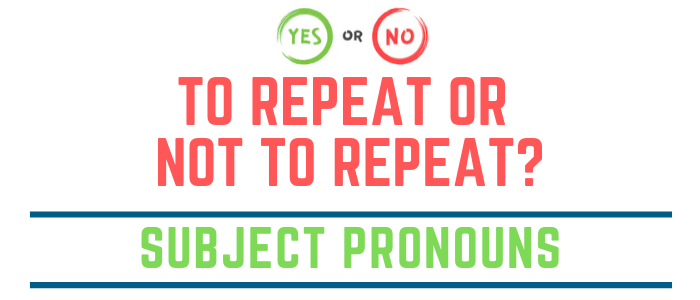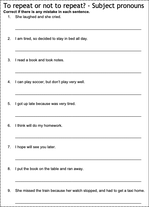Category: Pronouns
Generally, if you use the same subject pronoun in a compound sentence, you don’t need to mention it again unless the subject pronoun or the tense change.
Example sentences:
We always use a pronoun after the verbs “hope” and “think”:
Example sentences:
We always use a pronoun after “because”, “but” and “so”:
Example sentences:
Example sentences:
- My mom is a secretary and lives in Tokyo.
- I woke up early in the morning and felt sick.
- He got up, took a shower and had his breakfast.
We always use a pronoun after the verbs “hope” and “think”:
Example sentences:
- I hope I get it.
- I think I’ll buy a new coat.
We always use a pronoun after “because”, “but” and “so”:
Example sentences:
- She is not coming because she can’t find a babysitter.
- I love fruit but I am allergic to apples.
- He was unhappy, so he left his wife.
Worksheet
Answers:
1. She laughed and cried.
2. I am tired, so I decided to stay in bed all day.
4. I can play soccer, but I don't play very well.
5. I got up late because I was very tired.
6. I think I will do my homework.
7. I hope I will see you later.
9. She missed the train because her watch stopped, and she had to get a taxi home.
1. She laughed and cried.
2. I am tired, so I decided to stay in bed all day.
4. I can play soccer, but I don't play very well.
5. I got up late because I was very tired.
6. I think I will do my homework.
7. I hope I will see you later.
9. She missed the train because her watch stopped, and she had to get a taxi home.



